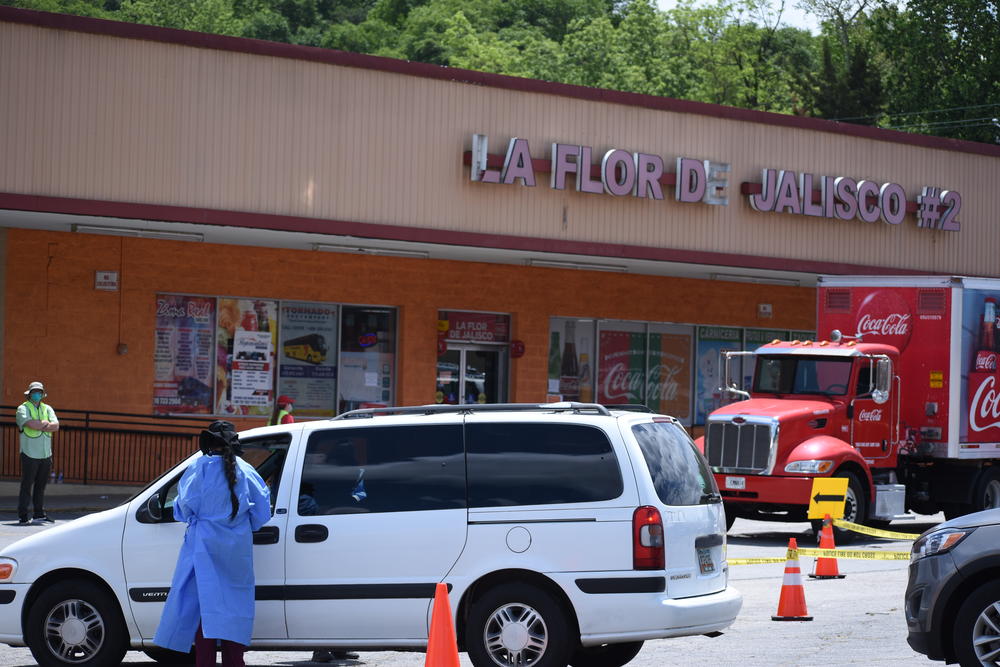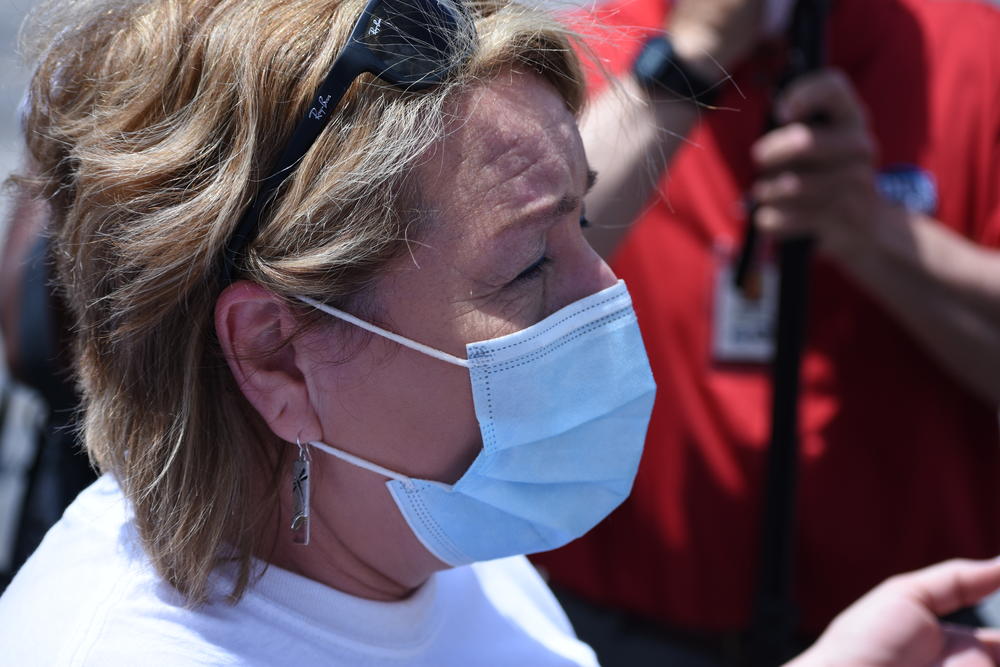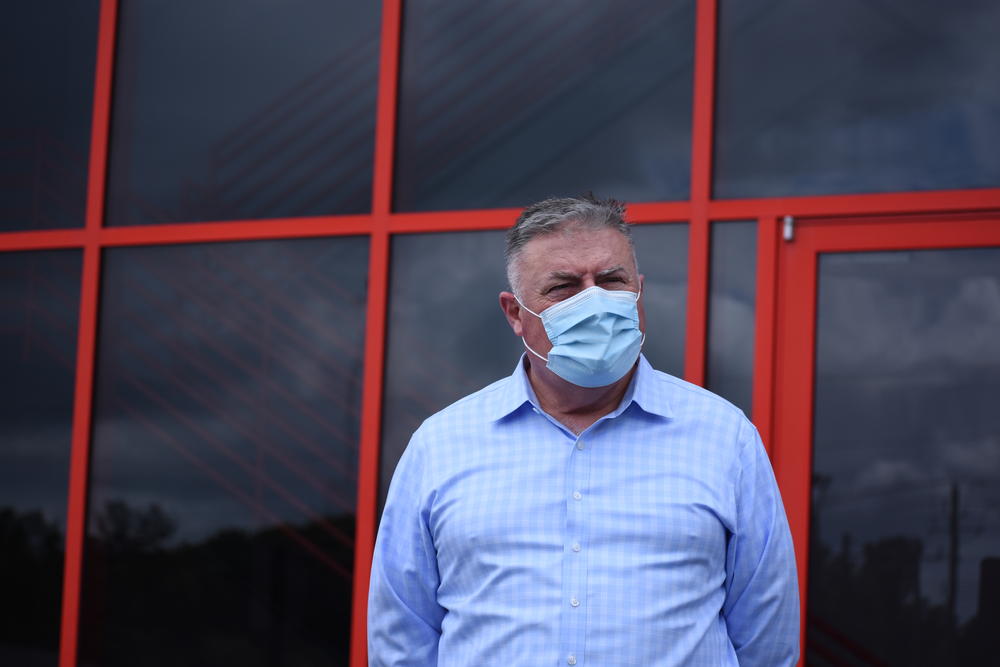Section Branding
Header Content
Northeast Georgia COVID-19 Hotspot Spurs Action In Poultry Industry, Latino Community
Primary Content
In the parking lot of La Flor de Jalisco #2 supermarket in the heart of Gainesville’s Spanish-speaking community, hundreds of people drove up or walked up Friday to a COVID-19 testing site put together by a local task force.
Volunteers wearing shirts reading “No Mascara! No servicio!” worked to disinfect taxis between customers and handed out masks and stickers for Latino businesses that remind customers, “No mask, no service.”
Gov. Brian Kemp and Insurance and Safety Fire Commissioner John King toured the site, as well as a poultry processing plant and the region’s hospital, to assess the response to the coronavirus’ impact in northeast Georgia.
Hall County is home to a large portion of Georgia’s poultry industry, and the Latino community in Hall County has been hit especially hard by the virus.
Both facts have prompted state and local leaders to take action.
Norma Hernandez is president of the Northeast Georgia Latino Chamber of Commerce. As part of a local coronavirus task force, she’s worked for weeks to pull this day together, not just for the Latino community, but also for poultry producers.
“We are Gainesville, we are Hall County, and we were getting sick – I say were, because this is stopping here, we are taking charge,” she said to a group of English and Spanish media outlets. “This is stopping right here.”
Chicken processing is big business in Georgia, and even bigger in Gainesville. Thirty million pounds of poultry a day accounts for 15% of America’s production.
Across town, Kemp visited one of Fieldale Farms’ multiple facilities last week, where officials say about 200 of the 5,000 or so workers across six counties tested positive.
Since the initial outbreaks, poultry plants have increased safety measures and worked to educate employees on coronavirus prevention.
Fieldale is paying workers to stay home for at least 17 days if they test positive for the virus. About 75% have recovered and returned to work. So far two workers have died.
King, the first Hispanic statewide Constitutional officer, was tapped by Kemp to root out how the virus was impacting the industry.
“If those workers don't go to work, America goes hungry,” he said. “They're truly essential members of our of our economy and of our society.”
Like many, he thought the infections were happening inside the plants. But the data revealed something more.
“When we noticed that infection rate in Latino workers was higher than Bosnian, Laotian, Cambodian and other types of workers… that drove the bright light to say, hey, infection is not taking place in here,” he said.
Or at least the virus wasn’t only being spread in the plants.
The United Food and Commercial Workers union, which represents some of Georgia’s poultry workers, is adamant processing plant conditions do contribute to spread of the coronavirus.
But why the Latino community in general has been more susceptible to coronavirus is still an open question. The Georgia Department of Public Health says the prevalence of multi-generational homes is a big factor.
So officials took on the strategy of tackling community spread by using community leaders like Norma Hernandez who can speak to at-risk people in their own language.
“Our message has to be simple, we don’t need to use medical terms and things like that,” she said. “We need to make simple, and the message is let's get healthy, let's get back to work and how are we going to do that? We're gonna do it by taking care of each other.”
Hernandez, King and Kemp all say there are signs this message is working.
At the supermarket testing site, Kemp said Hall County has seen a decrease in cases, an increase in testing and a boost in hospital capacity, and thanked members of the Latino community especially.
“Let me close by just again thanking the whole community for working together to really take a situation that could have been really really bad and making it a lot better,” he said. “The numbers we're seeing right now are fantastic.”
As for the poultry industry, hospital officials said 169 poultry farm and factory workers tested positive the last two weeks of April. That number dropped to 43 during the first two weeks in May.





